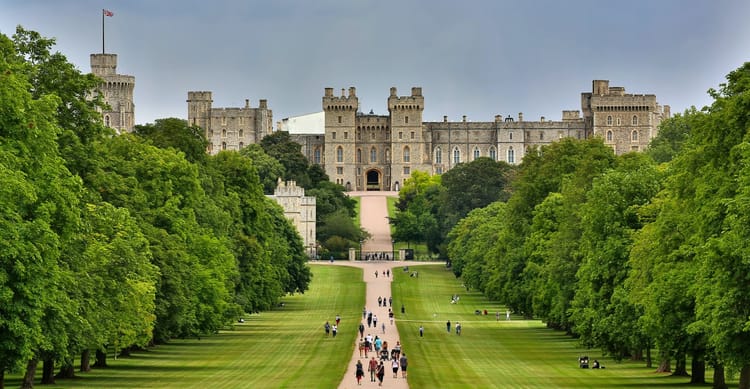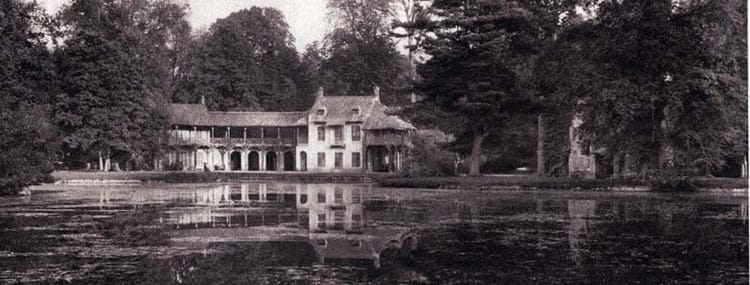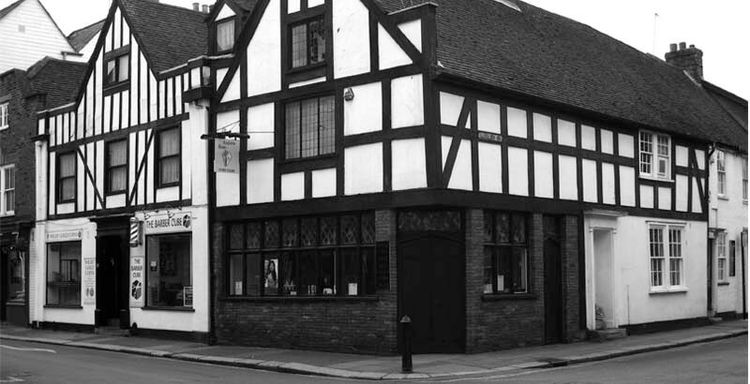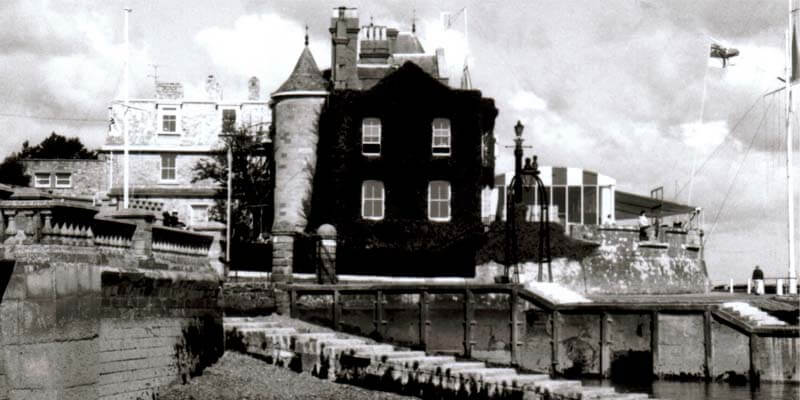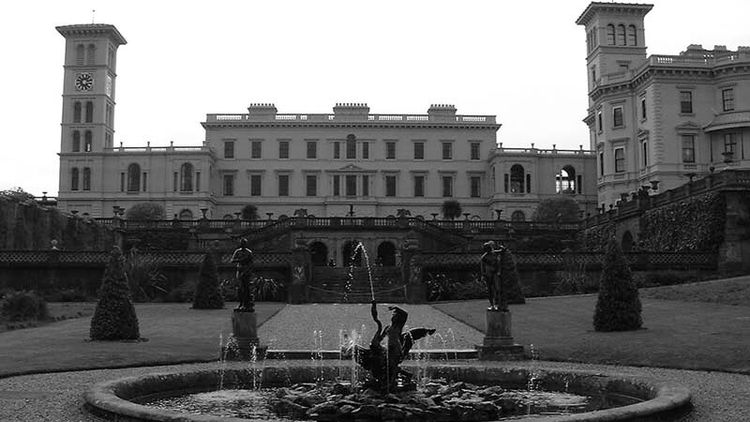Shanklin. Ghosts of the Isle of Wight, with Margo Williams.
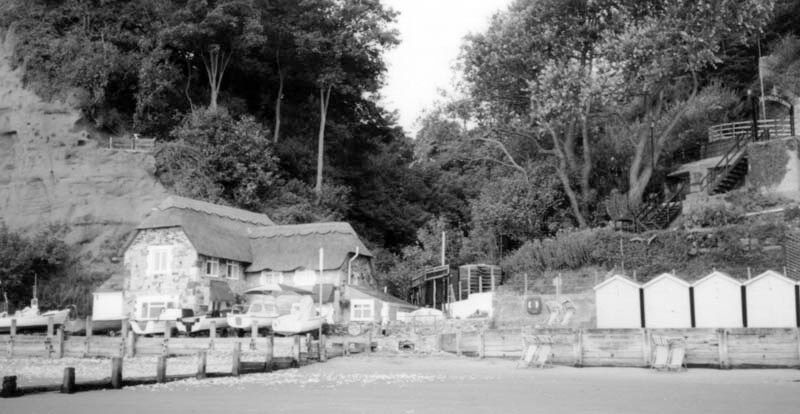
The Spy Who Stayed Out in the Cold
SHANKLIN CHINE is one of the natural wonders of the Isle of Wight, a twisting Jurassic-Park like chasm wherein dinosaurs ought to graze.
In fact this was the lair of a giant sea serpent, a monster that helped liberate Europe and carried the allied forces to victory in World War II.
Among Shanklin village’s most famous peaceful residents was young London poet John Keats, here to convalesce during the summer of 1819.
Chine Defined
Governor Sir Richard Worsley in his History of the Isle of Wight published in 1771, defined how the term “chine” is applied “..to the backbone of an animal, both in the manege, and culinary language which forms the highest ridge of the body.” “Echine” in the French is used in the same sense and Boyer has the word “chinfreneau” for a great cut or slash.”
“Hence the word “Chine” might be thought peculiarly expressive of a high ridge of land cleft abruptly down.”
Sir Richard had more to add despite Lady Worsley's gasp of despair. “A chine also appears to signify the same as chasm, and both to be derived from the Greek word that is to cleave asunder, so as to form a chasm or chine.” So there it is and thank you Sir Richard.
Worsley may have defined in 1781 how a chine gained that name but not how it came to be. This chine has been worn by the gradual operation of the small stream of water, assisted by frosts, heavy rains and the sea tides to the depth of nearly 200 feet (60.9m) and about a quarter of a mile (400m ) in length.
Keats stayed on the island to escape the coal-smoky London air which aggravated his sore throat. He feared it worsening into Tuberculosis and end his life. The poet of true love left the island later that year and travelled on to Rome where he died.

“Shanklin is a most beautiful place;" Keats wrote. "Sloping wood and meadow ground reach round the chine, which is a cleft between the cliffs of the depth of nearly 500 feet at least.
This cleft is filled with trees and bushes in the narrow part, and as it widens becomes bare, if it were not for the primroses on one side, which spread to the very verge of the sea, and some fisherman's huts on the other perched midway in the balustrade of beautiful green hedges along the steps down to the sand.” Source John Keats Life and Letters 1819.
In modern times Shanklin Chine is more famous as the lair of a giant sea monster that moved in during the reign of King George VI. John Keats probably wouldn’t Ode verse to its grace and elegance, but to the allied commanders planning the D-Day invasions of Normandy, it was a thing of beauty beyond words.
Mission Impossible
October 1941, Lord Louis Mountbatten received orders to report to the king and prime minister. Churchill was working on plans for an invasion of Europe, to push back the Nazi occupation of France.
He asked Lord Louis to coordinate the effort: land, sea and air, and suggested he think of something Hitler wouldn’t.
To land an enormous assault force on the shores of fortress Europe with all those bunkers, guns and wire was difficult but how to keep the force in place, tanks fuelled-up, looked like a logistical impossibility.
Pumping fuel ashore from tankers anchored off the coast was certain to fail due to bad weather, enemy aircraft and U-boat attack.
During a modest wine and flame-throwing luncheon, arranged by the man from the Ministry of Petroleum Warfare, Lord Louis saw a solution to that problem. They watched spurt and flame and stared at scorched grass where before the hosts of daisies had sunned themselves.
His lordship noticed the little ministry man’s rubber tubing. ‘Good God,’ said he. ‘That’s it!’
The Shanklin Chine Serpent Monster
‘Top Secret’ were the watchwords, but seriously scary were the thoughts occupying most islanders’ minds on hearing mariners’ tales of sea monsters in the coastal waters.
Someone claimed sighting of a giant Channel Serpent that reared huge coils out of the water and spewed blood from its mouth. Few realised the monster was coming to Shanklin Chine.
June 1943, operations HQ. Allied war leaders gathered around the map. Their meeting, code name Rattle, was attended by 11 air marshals, 20 generals and eight admirals; and among them plans for liberating Europe were deadlocked.
Lord Louis stood and rapped his baton on the table. ‘Gentlemen we shall not land at the Pas de Calais. They know all about it anyway, damn the spies. We shall land in Normandy, and as for fuel..,’ Lord Louis pointed to the Isle of Wight, to Shanklin. ‘Pluto will carry us to victory.’
‘Pluto?’ asked an air marshal.
‘Goofy’s dog?’ asked an American general.
‘Pluto,’ said the man from the ministry. ‘Pipe-line under-the-ocean. Or if you prefer, Pluto, ruler of the Underworld where Hitler will find a damned good roasting.’

Is All Fair in Love and War?
Through Shanklin Chine pipeline Pluto, a reinforced pipeline, fuelled the allied advance into Europe.
It pumped gasoline from the island directly across the English Channel, all the way to Normandy, beneath the U-boats. The rest is history.
Countless men and women lost their life during that conflict, and their bravery is remembered; but small acts of treachery cost the allies too many more.
‘All is fair in love and war’, is the saying attributed to John Lyly's 16th century novel Euphues but the ghost of Shanklin Chine will tell you otherwise. I found him near the remains of the pipeline.
He too awaited a tunnel; a tunnel up, or down to Pluto?
“... I have kept you waiting. I apologise, he said politely. “I was working on pipeline Pluto during the war. I was a spy, an Englishman who should have been sh.t as a traitor, but I was clever.
I passed on information about the line to the enemy, and had years of luxurious living afterwards.
I died a sad man, as found a barrier prevented me from reaching the light which all are to reach. I have been here for so long, people coming and going, and making silly remarks about Pluto. That has irritated me."
The ghost's tone sounded of mixed emotions.
"I have had to wait to confess and I realise I did harm, but not to the pipeline. That may be in my favour, or will it?
My name is Norman, I am ashamed of all I did. How I communicated with the enemy, a traitor to my country. Thank you for helping me, as a light shines ahead and I can continue my journey to the end of what appears to be a tunnel.”
Thank you for your company on this short tour of Isle of Wight mysteries and haunting. If you would like to know more about Margo Williams' investigations in Shanklin and other rogues and royals, read this book. Now available from Amazon.

